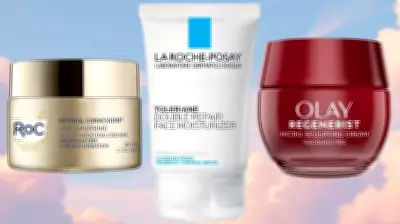
How much time do you really need to spend in the shower to get clean without damaging your skin or wasting precious water resources? The answer might surprise you, and science finally has the data to back it up.
The Goldilocks Zone of Showering
Recent research indicates there's a sweet spot for shower duration that maximizes benefits while minimizing negative impacts. Spending too little time leaves you inadequately clean, while lingering too long can strip your skin of essential oils and contribute to environmental strain.
What the Experts Recommend
Dermatologists and environmental scientists have reached a consensus on the optimal shower length. The magic number falls between five and ten minutes—long enough to effectively cleanse your body but short enough to preserve skin health and conserve water.
Why Timing Matters for Your Skin
Extended exposure to hot water can compromise your skin's natural barrier function. "Prolonged showers, especially with hot water, can strip away natural oils that keep your skin hydrated and protected," explains Dr. Sarah Jenkins, a board-certified dermatologist. "This can lead to dryness, irritation, and conditions like eczema."
The Environmental Impact of Your Shower Habits
Beyond personal health concerns, your shower duration has significant environmental consequences. The average shower uses approximately 2.5 gallons of water per minute, meaning a 15-minute shower consumes nearly 40 gallons of water.
Water Conservation Benefits
By limiting showers to the recommended five to ten minutes, an average household can save thousands of gallons of water annually. This reduction not only lowers utility bills but also decreases energy consumption associated with water heating.
Optimizing Your Shower Routine
To make the most of your shower time while adhering to the ideal duration:
- Focus on efficiency: Wash hair and body systematically rather than standing under running water
- Temperature control: Use warm rather than hot water to prevent skin damage
- Timing tools: Consider using a waterproof timer or shower playlist to track duration
- Quality products: Choose gentle, moisturizing cleansers that work effectively in shorter timeframes
When to Make Exceptions
While the five to ten-minute rule applies to most daily showers, certain situations warrant longer durations. After intense physical activity, exposure to contaminants, or when dealing with specific skin conditions requiring medicated treatments, slightly extended showers may be necessary.
The key takeaway? Your shower habits impact more than just your cleanliness—they affect your skin health, your wallet, and the planet. By finding that perfect balance, you can enjoy the benefits of this daily ritual without the drawbacks.





